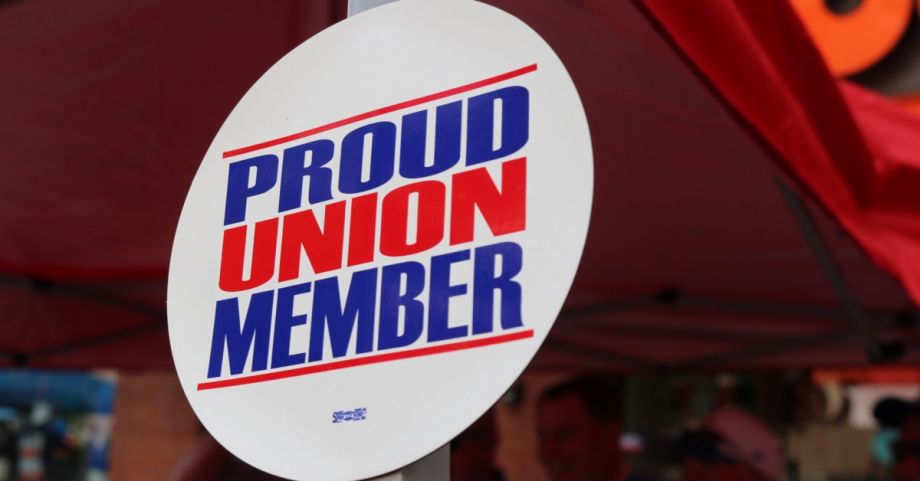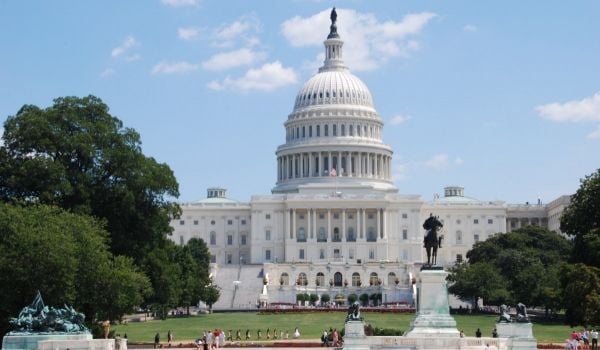Federal Government Making it Easier for Feds to Unionize
The White House has announced new measures to encourage its more than 2.1 million federal workers to join unions, Axios reports.
The federal government is the U.S.’s largest employer, but only one in five federal employees belong to a union.
Under the new guidelines, new employees will learn about unions during the onboarding process, with unions being present in training sessions. Employers will also be required to inform their current workers about their bargaining rights and how to get in contact with their union.
This Biden-Harris administration is hoping that women and workers of color will see the federal government as a place for them to join the labor movement.
Though only 20% of federal employees are part of a union, this percentage is higher than the just under 11% of Americans who have a union membership. However, as Axios reports, unions have proven themselves powerful in the last few months. John Deere workers, Hollywood crews, among others have all gone on strike or threatened to strike for better labor conditions and stronger wages.
Banks Increase Overdraft Fees for Third Year In a Row
A Bankrate study found that the average overdraft fee has reached a record high of $33.58, up 22 cents from the past two years, Bloomberg reports.
This number has continued to increase over the last three years, with banks in Philadelphia having the highest average fees. Politicians like Elizabeth Warren have taken issue with this, as lower-income residents are disproportionately affected by overdraft fees, and their paid fees account for more than half of the profitability of checking accounts.
Despite the increases, banks have been moving away from earning most of their revenue from overdraft fees. Bank of America Corp., for example, announced a new service that takes money out of other accounts into checking accounts when necessary. The service would cost $12. Other banks, as Next City previously reported, have agreed to reduce or eliminate overdraft fees. Huntington bank chose to offer interest-and-fee-free loans that would cover overdrafts to their customers. PNC Bank opted to inform their account holders before they overdraft so they can add funds if necessary.
The Bankrate study saw increases in costs in other areas of banking, too. The average balance needed to waive a monthly service fee on an interest-bearing checking account increased by 31% to almost $10,000. The maintenance fee on these accounts also went up by nearly 5.5% at a rate of $16.35 per month.
Green Investments Create More Jobs Than Non-Green Ones, Report Says
A study by the World Resources Institute (WRI) reports that “green investments generally create more jobs per $1 million than unsustainable investments.”
For instance, investments in mass transit create 1.4 times as many jobs as road construction. Ecosystem restoration and sustainable agriculture can create up to 3.7 times as many jobs than investments in fossil fuels. The study reached this conclusion after looking at near-term job effects, quality of work, and job security.
As the world looks towards green infrastructure because of climate change, the WRI suggests that governments should fund green initiatives as opposed to unsustainable sectors. The limitations of green jobs, however, is that this type of labor is often temporary. They may also have lower wages than jobs in traditional sectors where worker protections are strong.
To ensure that people are better protected, the WRI concludes that investment should also come with guarantees for fair wages, the right to organize, increased accessibility and safe working conditions.
This article is part of The Bottom Line, a series exploring scalable solutions for problems related to affordability, inclusive economic growth and access to capital. Click here to subscribe to our Bottom Line newsletter.


















